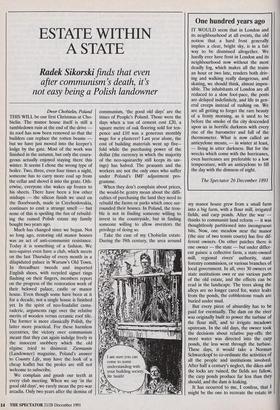One hundred years ago
IT WOULD seem that in London and its neighbourhood at all events, the old notion that a hard frost generally implies a clear, bright sky, is in a fair way to be dismissed altogether. We hardly ever have frost in London and its neighbourhood now without the most deadly fog, which makes all the trains an hour or two late, renders both driv- ing and walking really dangerous, and skating, we should think, almost impos- sible. The inhabitants of London are all reduced to a slow foot-pace, the posts are delayed indefinitely, and life in gen- eral creeps instead of rushing on. We are all getting to forget the rare beauty of a frosty morning, as it used to be before the smoke of the city descended upon us in horrific darkness with every rise of the barometer and fall of the thermometer. What is now called an anticyclone means, — in winter at least, — living in utter darkness. But for the wrecks which come with the hurricanes, even hurricanes are preferable to a low temperature, with an anticyclone to fill the day with the dimness of night.
The Spectator 26 December 1891










































































































 Previous page
Previous page